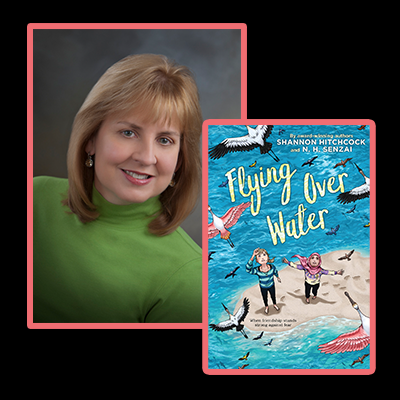The Power of Story: Recognizing Prejudice
My greatest hope is that kids who read my book develop empathy for people who may not look, sound, or worship the way they do. I hope it causes kids to question the world around them, to research issues they may not understand, and to grow into informed citizens, the kind our country desperately needs.

As a young girl, stories allowed me to journey far from my rural North Carolina town and see the world. I traveled to the Swiss Alps with Heidi, ran wild on the moors with Heathcliff and Catherine, and hid in an attic with Anne Frank. But one book stood above the others—To Kill A Mockingbird. I recognized the racism in that book because it still existed in my town.
 When I was growing up, the N word was as common as the tobacco fields that surrounded us. Though folks didn’t openly acknowledge it, people with black skin weren’t welcome in our local pool, or in some area restaurants.
When I was growing up, the N word was as common as the tobacco fields that surrounded us. Though folks didn’t openly acknowledge it, people with black skin weren’t welcome in our local pool, or in some area restaurants.
Given that background, it’s no wonder my novels have social justice themes. I have written about a young girl’s right to an education (The Ballad of Jessie Pearl), about civil rights (Ruby Lee & Me), about LGBTQ rights (One True Way), and now about immigrant rights (Flying Over Water).
The initial inspiration for Flying Over Water struck when a high school friend’s daughter converted to Islam. I started researching the religion, though I wasn’t entirely sure where the journey would take me. About that same time, I saw a photograph in my minister’s office of a Syrian woman and her young son. They held a sign that read "WE ARE FROM SYRIA CAN YOU HELP US"? I started writing a story about a Christian girl whose church helps a Syrian refugee family.
While writing about this refugee family, I recognized the prejudice from my childhood, but this time it was directed toward Muslims.
I wrote a first draft from the Christian girl’s point of view, but after paying attention to #ownvoices, I worried the manuscript was centered in the wrong place. I decided to seek a co-author and after reading Escape from Aleppo by N.H. Senzai, I knew she would be the perfect author to collaborate with.
It is easy to get defensive over who should tell which stories, but Flying Over Water is a much richer story because of my partnership with Naheed. I have come to believe that the purpose of #ownvoices is not to tell us what to write, but to challenge us to find the best way to tell each story so that it rings with authenticity.
My greatest hope for Flying Over Water is that kids who read it develop empathy for people who may not look, sound, or worship the same way they do. I hope it causes kids to question the world around them, to read and research issues they may not fully understand yet, and finally to grow into informed citizens, the kind our country desperately needs.
This article, much like Flying Over Water, is a companion piece. Check back on SLJ.com next week to hear from Shannon’s co-author N. H. Senzai.
Shannon Hitchcock is the co-author of Flying Over Water and the author of One True Way, Ruby Lee & Me, and The Ballad of Jessie Pearl. Her books have been featured on many state awards lists and have received acclaimed reviews. Shannon recently moved from Tampa, Florida to Asheville, North Carolina. For more, visit her website at shannonhitchcock.com.
This article is part of the Scholastic Power of Story series. Scholastic’s Power of Story highlights books for all ages that tell the stories of historically underrepresented groups specifically related to race, ethnicity, sexual orientation, gender identity, physical and mental abilities, religion, and culture. Hear from other speakers on this topic and download the Power of Story catalog at Scholastic.com/PowerofStory. Check back on School Library Journal to discover new Power of Story articles from guest authors, including Bill Konigsberg, Varian Johnson and Shannon Wright, Aida Salazar, and more.
SPONSORED BY
RELATED
The job outlook in 2030: Librarians will be in demand
The job outlook in 2030: Librarians will be in demand
ALREADY A SUBSCRIBER? LOG IN
We are currently offering this content for free. Sign up now to activate your personal profile, where you can save articles for future viewing







Add Comment :-
Be the first reader to comment.
Comment Policy:
Comment should not be empty !!!